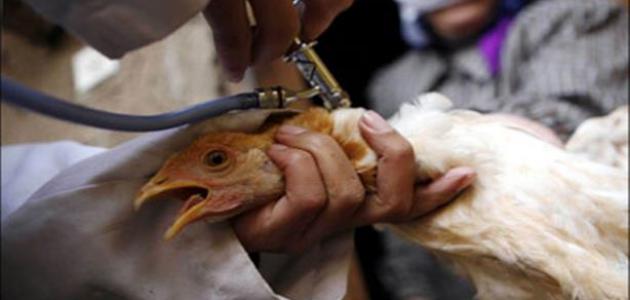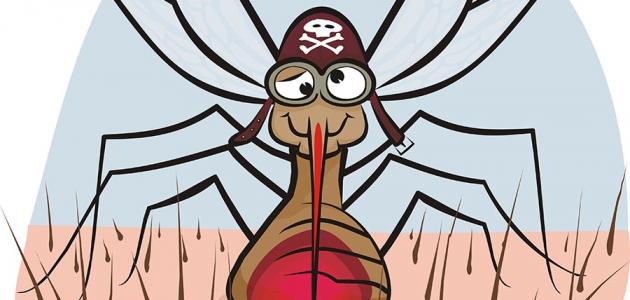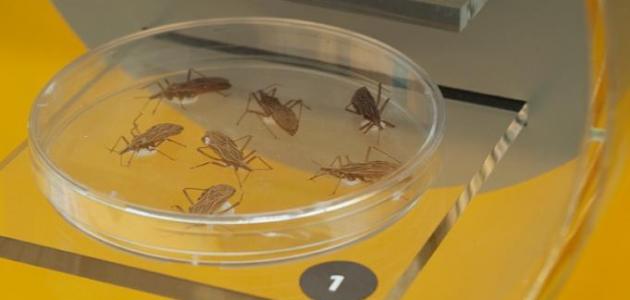Contents
Bird flu
Avian influenza is a contagious viral disease that mainly affects birds, and it may be transmitted to humans, and it develops causing death. This virus spreads among birds, especially domestic birds, such as chickens, ducks, geese, and waterfowl that migrate from one place to another, carrying the virus with them and transmitting it from one place to another, such as wild ducks. This virus is transmitted through the air, where it initially resides in the bodies of birds, and in their blood, saliva, noses, and even their feces, and it can be transmitted from one animal to another animal in this way, and it may be transmitted to humans as well. And it has several other names, including: Henan birds, bird plague as it was called in Italy, where the disease first appeared a hundred years ago.
Their characteristics
You live in cold climates, you may be able to continue under low temperatures for three months, while in water you can live for four days under the influence of the temperature of 22 degrees, and if the temperature is very low, you can live more than 30 days. Influenza dies under the influence of high temperatures (30 to 60 degrees), and studies have shown that one gram of contaminated fertilizer is sufficient to infect a million birds. Birds that survive infection excrete the virus for at least 10 days, from the mouth and in their faeces, which facilitates its spread, unlike chickens and ducks known to be resistant to the virus, as it acts as a vector without having symptoms of the virus, which contributes to a wider spread of the disease. And the outer shell of the virus is made up of fats, so it is quickly affected by soap, and acidic mediums such as vinegar and lemon, as well as formalin and technic, as well as high temperatures and drought.
Causes of infection
- Direct contact with wild birds, which transmit the disease without showing any symptoms.
- Exposure to droplets from the chickens' mouths, and the secretions of their respiratory system.
- The use of clothes and shoes contaminated with dung in farms and markets, and tools contaminated with the virus, such as chicken cages, eating and drinking equipment, and barn floors.
- Using the excrement of sick birds to fertilize agricultural lands.
- Contact with infected live birds in the markets, which played an important role in spreading the deadly epidemic.
Symptoms of infection
Among the symptoms that appear on the infected person, who needs at least a week to incubate the virus, the feeling of a permanent headache, a general decline in body forces, tremors, and fatigue, in addition to loss of appetite, constipation, high body temperature, persistent cough, and body aches And muscles. The condition may develop, especially for those who suffer from chronic diseases, such as those with diabetes and asthma, which increases shortness of breath, and the occurrence of pneumonia, in addition to a weakening of the body's immune system. The lack of interest in treating the disease, and the lack of proper nutrition makes the person more vulnerable to infection, and reduces the likelihood of his recovery.
Ways to prevent them
Prevention of this disease is done by taking care of seasonal influenza vaccinations, and it is necessary to see a doctor as soon as possible when there is a suspicion of infection, and to drink preventive and anti-virus medicines. In general, a person must strive to strengthen his immune system, as the body is working to overcome the disease, by ensuring proper nutrition, which contains the nutrients that the body needs, such as vitamins, calcium, mineral salts, and other elements that improve The work of the body's immune system. It is also necessary to wash hands always, to be careful not to neglect the general cleanliness of the body, to reduce mixing with people affected by the disease, not to use their personal items, to avoid being in crowded places, and to increase the ventilation of places of human gatherings. When eating poultry meat, be sure to cook it well.
Immunological research confirms that a person can increase the ability of his immune system and help it, by increasing the intake of antioxidant vitamins found in vitamin A, such as carrots and fresh leafy vegetables, as well as vitamin C, which is found in citrus fruits such as lemons, tangerines, oranges, dried fruits, and apples. , Leafy vegetables, as well as vitamin E, which is found in vegetable oils, and foods that contain zinc and selenium, and it is okay to eat a daily vitamin tablet that contains such vitamins, in addition to increasing the intake of green mixed salad, fruits, orange juices, and lemons, As these vitamins help improve the immune system, reduce the spread of infection inside the body and avoid complications from it.
Treat it
No cure has been found for this virus itself, but doctors generally prescribe antivirals, such as Tamaflu and Relenza, as they help relieve the symptoms and severity of the disease. The patient is advised to rest completely, and some vitamins.
Virus-resistant foods
- Red grapes have the property of resisting bacteria and viruses, as well as antioxidants
- Berries are anti-viral, rich in vitamin C, a powerful antioxidant, and prevent cell turnover, which leads to cancer, and is rich in fiber.
- Apples are anti-bacterial, anti-inflammatory, antioxidant, and rich in solid fibers, as they are useful in lowering blood cholesterol levels, and they also have a property that prevents cancer.
- Pineapple is anti-bacterial, anti-viral, anti-inflammatory, and aids digestion.
- Garlic has many benefits, as it can be used as a natural antibiotic, anti-fungal, anti-oxidant, anti-viral, anti-inflammatory, tonic for the immune system, cholesterol lowering, stress, and sugar.
- White honey is considered a natural antibiotic, and it helps heal wounds, treat intestinal bacteria, and it may be used as a natural sedative. * Carrots are anti-oxidants and viruses, and contain fiber, and strengthens the immune system.
- Broccoli is an anti-oxidant and antiviral, and it reduces the level of cholesterol in the blood, contains fiber, and has the property of protecting the body from cancer, and it is also useful for women with breast cancer.
General advice
- Raw meats must be separated from cooked or ready-to-cook meats to prevent contamination.
- The same knife used for chopping fruits or vegetables should not be used for cutting poultry.
- After cooking, meat should not be placed in the same bowl or surface it was in before it was cooked.
- Uncooked eggs should not be used in foods that are prepared without the use of heat.
- The outer eggshell should be washed well before breaking it, because it may be contaminated with bird droppings, and make sure to wash the hand after using the eggs.
- Paramedics and medical personnel must use protective masks when dealing with cases of respiratory illness.
- Avoid spitting on the floor, use tissues only once, and wash hands after use.
















